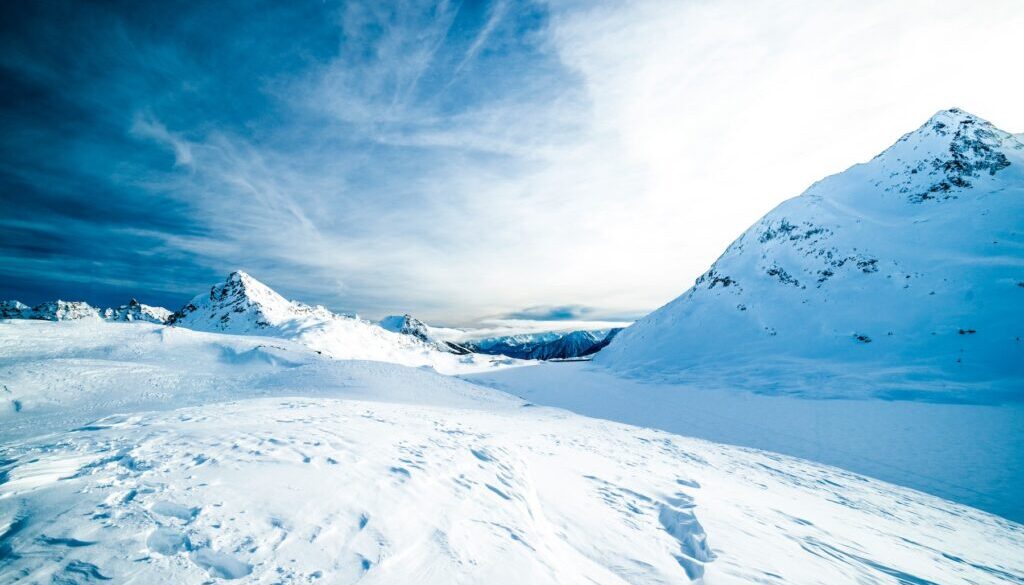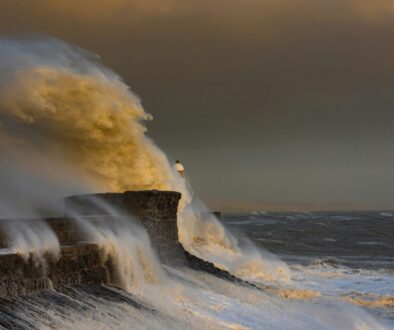Beyond the ice – what (rural) engagement do we want to have in the ‘High North’?
Back in November 2023 the House of Lords Committee on International Relations and Defence published a report on the Arctic and the UK’s approach to the region. The Committee described how the Arctic was experiencing significant change and critical to UK interests. On 9 January 2025 the House of Lords debated the UK’s strategy towards the Arctic. Where is the Arctic region, what is the UK Government’s Arctic strategy and what does this mean for rural communities? Jessica Sellick investigates.
………………………………………………………………………………………………..
In March 2023 the House of Lords International Relations and Defence Committee launched an Inquiry into the Arctic and the UK’s approach to the region. The Committee described the UK as the Arctic’s ‘nearest neighbour’ and indicated how developments in the region are critical to UK interests. In citing the rapidly evolving diplomatic and security context in the Arctic, and global warming and a reduction in ice coverage, the Committee looked at the Government’s current policy approach and provided recommendations on how the UK could best advance its interests and those of its allies in the region. Where is the Arctic and why is it of critical importance to the UK?
Where is the Arctic region? The Arctic (from the Greek word ἄρκτος, meaning ‘bear’) is a polar region located at the northernmost part of Earth. It is typically defined as the area above the Arctic Circle. The Arctic region consists of parts of northern Norway (Nordland, Troms, Finnmark, Svalbard and Jan Mayen), northern Sweden (Västerbotten, Norrbotten and Lappland), northern Finland (North Ostrobothnia, Kainuu and Lappi), Russia (Murmansk, Siberia, Nenets Okrug, Novaya Zemlya), the United States (Alaska), Canada (Yukon, Northwest Territories, Nunavut), Denmark (Greenland), and northern Iceland (Grímsey and Kolbeinsey), along with the Arctic Ocean and adjacent seas. The House of Lords International Relations and Defence Committee describes the Arctic as a physically, economically and socially diverse region which, nonetheless, shares common features and challenges.
In 1996 The Arctic Council was established as an intergovernmental forum to facilitate multilateral cooperation, coordination and interaction on issues relating to the Arctic, particularly on sustainable development and environmental protection issues. The founding document of the Arctic Council, the Ottawa Declaration, lists the following countries as Members of the Council: Canada, the Kingdom of Denmark including Greenland and the Faroe Islands, Finland, Iceland, Norway, the Russian Federation, Sweden and the United States. Six organisations representing Arctic Nations Indigenous Peoples have Permanent Participant status, providing them with full consultation rights in connection with the Council’s negotiations and decision-making. The Council has six working groups comprising (1) Arctic contaminants action programme, (2) Arctic monitoring and assessment programme, (3) conservation of Arctic flora and fauna, (4) emergency prevention, preparedness and response, (5) protection of the Arctic marine environment, and (6) sustainable development – there is also an Expert Group that covers black carbon and methane. The Council is chaired by the Minister of Foreign Affairs of the state holding the chairmanship (at the time of publication: Norway). Each Arctic state appoints a Senior Arctic Official (SAO) to manage its interests in the Arctic Council.
Observer status is open to non-Arctic nations along with intergovernmental and non-governmental organisations that the Council determines can contribute to its working groups. This currently comprises thirteen non-Arctic states – including the UK, thirteen intergovernmental organisations and twelve non-governmental organisations.
The standing Arctic Council Secretariat began in 2013 in Tromso, Norway and provides administrative support and general capacity to the Council. The Arctic Council Strategic Plan 2021-2030 reflects the shared values and joint aspirations of the Arctic states and the Permanent Participants to advance sustainable development, environmental protection and good governance. The document contains seven strategic goals around climate, ecosystems, the marine environment, sustainable social development, sustainable economic development, knowledge and communications, and a stronger Arctic Council. These goals are underpinned by strategic actions. As the Council is a forum it has no central programming budget. All projects or initiatives are sponsored by one or more Arctic states, and its work excludes military security.
What is the UK’s Arctic strategy? The Government has set out its approach in two principal documents. Firstly, in ‘Looking North: the UK and the Artic’, known as the Arctic policy framework. Published in 2023 by the Foreign & Commonwealth Office, the document sets out the Government’s aim of helping to ensure the Arctic remains peaceful. This involves the Government taking a ‘whole Government response’ to be ‘dynamic and responsive to changes’ in the region. It contains four priority areas for action: (i) partnering and collaborating – including a commitment to remaining a State Observer on the Arctic Council; (ii) protecting the climate, people and environment; (iii) preserving security and stability; and (iv) promoting shared prosperity in the region, where economic and regional development is achieved in a safe and responsible way. The document builds on two earlier iterations of the Arctic Policy Framework – the original framework that was published in 2013, ‘Adapting to Change’ and revised in 2018: ‘Beyond the Ice’. Back in 2016, the UK, Norwegian and Canadian Governments jointly funded a Wilton Park roundtable discussion. The roundtable explored alternative scenarios for the environmental, political, economic and social challenges faced by the Arctic, looking ahead to 2045. This found that while the Arctic region consists of many different geographies it is not about to become a national park and needs to continue as a lived in, managed, environment.
Secondly, ‘The UK’s defence contribution in the High North’ published by the Ministry of Defence in March 2022. Intended to guide the Government’s defence efforts in the region over a 10-year period, the document focuses on protecting the UK’s critical national infrastructure, ensuring the UK’s freedom to navigate and operate across the wider region, reinforcing the rules-based international system and contesting malign and destabilising behaviours.
On 30 March 2023, the International Relations and Defence Committee launched an inquiry into the UK Government’s approach to the Arctic. The Committee considered the UK’s strategic and diplomatic interests in the Arctic, and whether the Government has set appropriate priorities. The Committee’s work also included scrutiny of the Arctic Policy Framework and the UK’s defence contribution in the High North.
“The UK is the Arctic’s nearest neighbour and developments in the region are critical to UK interests. The strategic and environmental context in the Arctic is changing rapidly and the UK needs to be ready to respond to the diplomatic and security challenges this poses,” Chair’s comment.
The Inquiry included a call for evidence, written evidence and oral evidence. The Committee published its report on 29 November 2023. This highlighted issues including reduced sea ice coverage, geopolitical developments and the (uncertain) future of the Arctic Council. While reaffirming its belief that developments in the Arctic are of ‘critical importance’ to the UK’s security, environment and energy supply, the report made recommendations in five key areas – (a) the UK’s Arctic strategy, (b) Russia and deterrence, (c) internationalisation of the region, (d) growing economic activity in the Arctic, and (e) cooperation and governance. Around the Government’s strategy, the Committee recommended that it reflect how the region is an area of competition and potential confrontation. Around growing economic activity, the Committee highlighted how the region is becoming vulnerable to large-scale commercial fishing and how the UK Government should take a leading role in negotiating a new polar code. The Committee called for increased ministerial focus, including an Arctic ambassador or envoy to assist the Government minister responsible for coordinating a cross-government approach to the Arctic, and to prepare for any future possibility of the Arctic Council ceasing to function.
The Government published its response to the Committee’s report on 26 January 2024. Here the Government set out its commitment to working with partners to contribute to the ongoing critical work of the Arctic, and how it has committed funding so that UK researchers can engage on Arctic Council working groups. Similarly, the Government reaffirmed its commitment to playing its role in the sustainable management of fisheries in the Arctic, advocating for the highest possible shipping standards and adherence to the polar code.
“The Arctic matters to the United Kingdom. We are its nearest neighbour and its climate, environment, security and prosperity are crucial to our own…most of what happens in the Arctic takes place within the territory of sovereign states, most of whom are our close partners and allies. That activity falls within their national jurisdiction, and our respect for their territorial sovereignty is a key principle of the UK’s engagement in, and with, the region…The UK has a lot to offer the Arctic…we have an excellent reputation for Arctic science and contributing to the global understanding of climate change, while London is a global centre for shipping and the financial expertise that underpins much of the new commercial activity in the Arctic…What matters for the UK is the expertise and capabilities we have to offer: that is why our partners value the UK’s contribution in the region, and that enhances our ability to influence what happens in the Arctic” (pages 5-6)…A Minister for the Polar Regions has been established within the Foreign, Commonwealth and Development Office to provide a clear point of focus for HMG [His Majesty’s Government] engagement in the Arctic (page 14) Government response.
The All-Party Parliamentary Group (APPG) for the Polar Regions was formed in 2015 to ensure that UK parliamentarians are informed about issues impacting polar regions and how they affect the UK. This includes the publication of Polar Regions News to promote better awareness of the Arctic and Antarctic. The APPG chaired the House of Commons Environmental Audit Committee’s inquiry into the UK’s relationship with the Arctic. In October 2023 the Committee published its inquiry report. This described UK Government policy on the region as ‘disjointed’ and emphasised the need for an envoy to bolster Government collaboration in addressing the combined challenges of climate and geopolitics in the Arctic. While highlighting how UK Arctic researchers ‘punch well about their weight in terms of reputation and influence’ – the UK is the fourth largest producer of Arctic research papers in the world and operates an Arctic research station in Ny-Ålesund (Svalbard) – the Committee called for a UK National Arctic Research Policy backed by increased funding.
“The Arctic is seeing an increased level of strategic competition as melting Arctic ice unlocks vast resources and commercial potential. This cannot be at the cost of the Arctic’s Indigenous Peoples or the environment. The UK has a responsibility to ensure that commercial opportunities in the Arctic are guided by the principles of sustainable development”, The UK and the Arctic environment report summary.
In October 2024 the UK Minister of State for Europe, North America and Overseas Territories outlined the UK’s commitment to the Arctic in a speech to the Arctic Council Assembly. Stephen Doughty confirmed that the Arctic Policy Framework would continue to guide the Government’s approach and that it would be updated and developed to respond to scientific evidence and strategic challenges:
“…let me confirm to you that the new UK Government is putting internationalism and multilateralism at the heart of all that we do…we are committed to the Arctic Council in our role as State Observer, recognising that it has been at the heart of a stable and peaceful region for much of the past three decades. And indeed, the Council has an important role to play in articulating a strong voice and delivering effective governance. It has the potential to act as a multilateral ‘glue’, with the strength to bind together a fragmented world…we have already invested over £135 million pounds in Arctic research over the last decade, including through UK centres of expertise…and we are committing further funds to collaborations with Arctic Council working groups, helping to enhance understanding of climate impacts on the livelihoods of Arctic indigenous people, including many other things…the future of the Arctic depends on every one of us, working together, in a spirit of strong collaboration and cooperation. I hope that when we look back, 25-years from now, it’ll be from the perspective of a more secure, peaceful and indeed sustainable era”, Stephen Doughty MP, speech delivered on 18 October 2024 in Reykjavik.
On 9 January 2025 the House of Lords held a debate on the House of Lord’s International Relations and Defence Committee’s 2023 report. The debate focused on geopolitical developments and the implications of Russia’s military investment and climate change; the UK’s defence commitments to the Arctic and the importance of the Government’s Strategic Defence Review in setting out our operational posture; as well as China’s growing interest and influence in the region. During the debate, there was a sense that the UK needs to do more to articulate its priorities and increase its diplomatic activity.
“The Arctic Circle is only 380 miles north of British waters, which is only 64 miles less than the distance by road between my home in the west of Scotland and London. As the report reminds us, although the Arctic is a byword for remoteness, it is in fact extraordinarily close to our country, in terms of both geography and, much more importantly, our strategic interests… there are real challenges of capacity if the UK is to maintain and increase its relationships operability in the High North…The Arctic states and the UK will need to consider their response to an Arctic that presents new commercial opportunities, as well as a different range of security threats”, Lord Browne of Ladyton.
“I welcome this excellent and timely report. It confirms an urgent reality: the Arctic is no longer a frozen wilderness; it is the new frontier where climate change meets great power competition…The Arctic is not someone else’s problem; it is ours too…The United Kingdom must remain not only present but relevant…This demands proactive engagement, investment in polar capabilities and support for our allies,” Baroness Helic.
What does this mean for rural communities in the UK? Scotland is the northernmost non-Arctic nation, with the Scottish Archipelago just four hundred miles south of the Arctic circle. Back in 2019 as part of its commitment to becoming a ‘European Gateway to the High North’, the Scottish Government published ‘Arctic connections: Scotland’s Arctic policy framework’, a prospectus for cooperation, knowledge-exchange and policy partnerships. The prospectus covers four principal areas: (i) connectivity – enhancing transport and digital links between Scotland and the Arctic, (ii) rural economies – promoting sustainable economic development in rural and remote areas, (iii) marine resources – collaborating on marine science and marine resources and (iv) cultural heritage – preserving and promoting the cultural heritage shared between Scotland and the Arctic.
“Scotland is among the Arctic region’s closest neighbours; we share many features and outlooks and have long looked to each other for inspiration, solutions and ideas. To this day, connections forged through history continue to spur new academic partnerships, trade exchanges, artistic projects and joint cooperation improving our daily lives…from improving connectivity and invigorating rural economies, to making sustainable use of marine resources and cultivating cultural heritage…this [Arctic policy framework] puts people back at the heart of the Scottish-Arctic dialogue… By building a new platform for policy and knowledge exchange, the Scottish Government intends to strengthen the foundations of a long-standing two-way discussion with its Arctic partners”, (page 4) Arctic policy framework.
Between October 2020 and March 2021 the Scottish Government organised a webinar series, ‘Arctic connections’, to encourage dialogue and knowledge exchange between Scotland and Arctic stakeholders. The series covered the themes set out in the policy framework and included sessions on access to mental health support and reversing depopulation. Between 2021 and 2023 the Scottish Government also provided an Arctic Connections Fund to support Scottish organisations and communities to collaborate with partners in the Arctic. In March 2024 Edinburgh hosted Arctic Summit Week.
What can we translate from the UK and Scottish Governments commitment to the Arctic? I offer three points.
Firstly, can we collate data on all of the research and initiatives in the Arctic that involve UK charities, UK businesses and other UK bodies? Through applying a rural lens, can we build a comprehensive picture of where this work engages with rural and remote communities in the Arctic? This could then be reviewed to see if/where it resonates with rural communities in the UK. Similarly, there will be learning and good practice from rural initiatives in the UK that could be shared with the Arctic Council and Arctic Indigenous People. Are there common issues (e.g. access to services, connectivity and transport) that rural communities in the UK could collaborate and partner with Arctic region partners on to develop solutions, and how could this be facilitated (e.g. through the Arctic Council working groups, UK research centres of expertise)?
Secondly, it is estimated that four million people live in the Arctic region, of which approximately 10% are Indigenous peoples. The involvement of Indigenous peoples in the Arctic Council is not tokenistic but provides a model for how Indigenous rights can be represented in international fora. Around 10 million people in England live in rural areas, with the rural population growing at a slower rate than the urban population. Is there learning and good practice in the way the Arctic Council is operates that could assist rural communities in the UK to have a greater voice and stake in national issues that affect them?
Thirdly, how can we gear up our contribution to the Arctic region? Notwithstanding there is not a common technical definition of what constitutes the Arctic or the Arctic region, the new Minister for the Polar Regions has established a cross-governmental ministerial group involving Ministers from nine departments. The group is due to meet for the first time in February 2025 and is seen as playing a key role in coordinating Arctic policy. How can we ensure this approach is inclusive and takes account of rural needs and opportunities?
When we think of the Arctic many of us will have a view of pristine wilderness or an area covered entirely by ice and snow, but it is not empty. Successive Arctic Policy Frameworks have contained few if any references to rural communities in the UK. In addition to focusing on areas such as science, climate change, energy, fisheries and finance, what more can we do to ensure the implementation of the current policy framework has applicability to rural communities here? And to what extent do those of us living and working in rural areas wish to look to the High North?
…………………………………………………………………………………………………
Jessica is a project manager at Rose Regeneration and a senior research fellow at The National Centre for Rural Health and Care (NCRHC). She is currently measuring the impact of a service that supports patients living with and beyond cancer; and reviewing neighbourhood-based initiatives (NBI). Jessica also sits on the board of a charity supporting rural communities across Cambridgeshire and is a member of her local Patient Participation Group.
She can be contacted by email jessica.sellick@roseregeneration.co.uk.
Website: http://roseregeneration.co.uk/https://www.ncrhc.org/
Blog: http://ruralwords.co.uk/
Twitter: @RoseRegen



